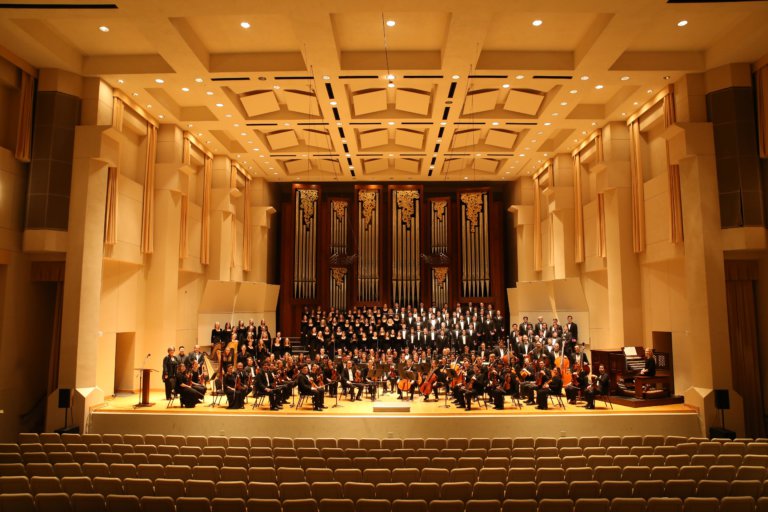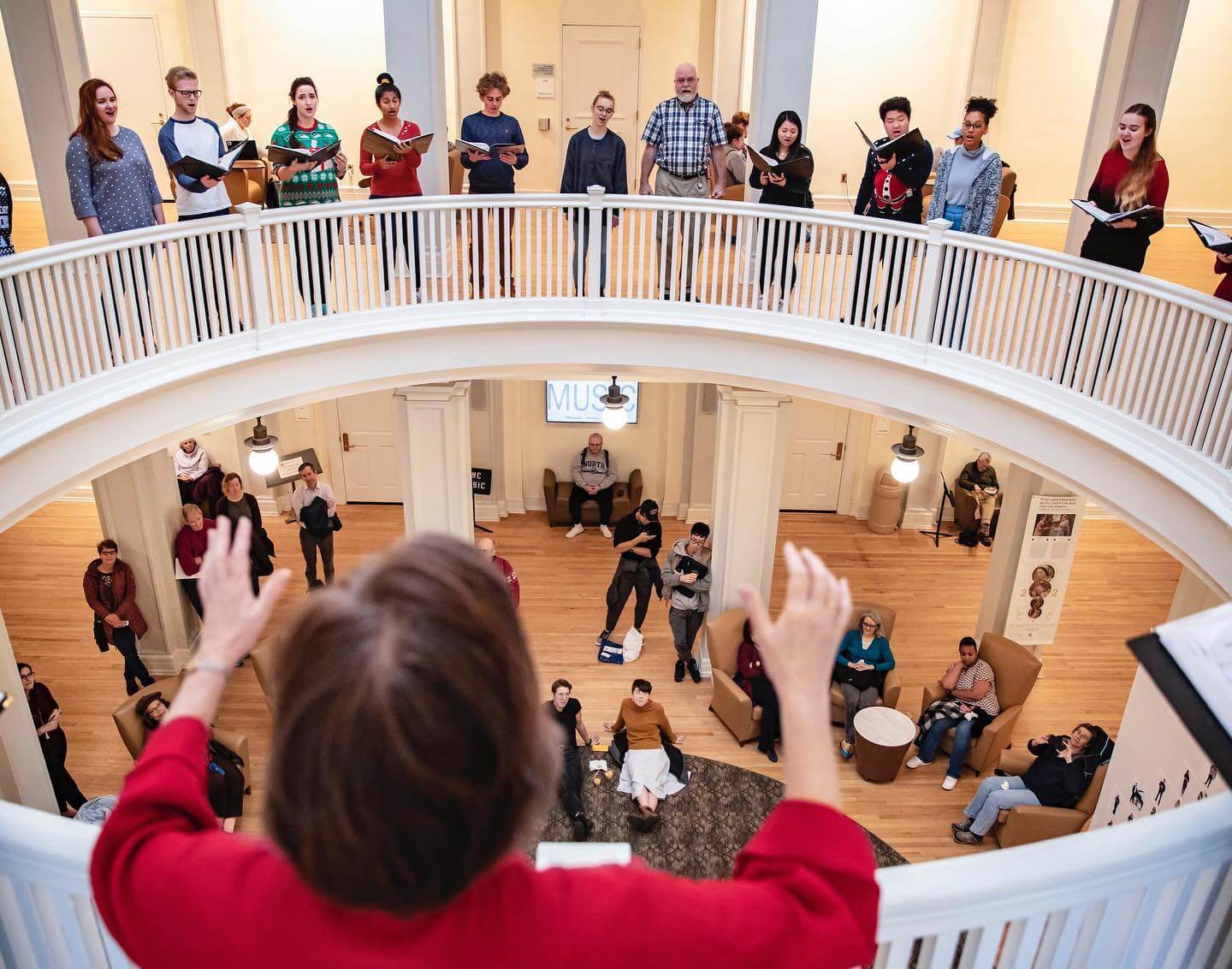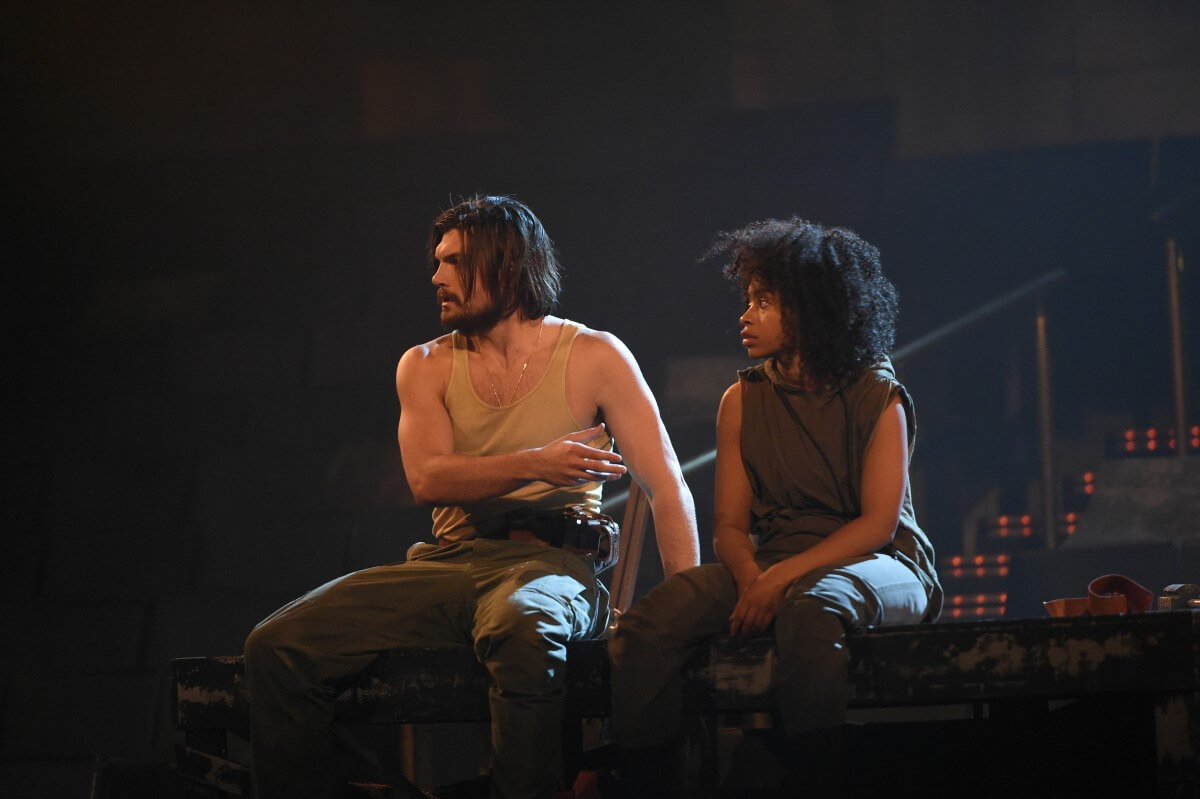
There are many reasons why musical creatives should expand their expertise and broaden their horizons with a degree. Sure, many artists topping the charts on Spotify would say otherwise; however, if you wish to gain employment –– in an orchestra, studio, opera, or even Broadway –– a degree can seriously pay off.
According to a study by the Strategic National Arts Alumni Project (SNAPP) –– an organisation dedicated to analysing the impact of arts education –– 67% of alumni with educational backgrounds in performance, creative writing, and film secured jobs in the arts.
Outside the arts, they do just as well. Music graduates are capable of excelling in a variety of roles across sectors. After all, trained musicians hone the skills to use time effectively and instil discipline in themselves. They are also naturals at striving to be the best of the best.
What’s more, a college education enables aspiring musicians to fill their CVs with performance opportunities well before graduating. In doing so, they ultimately gain enough experience to enthuse confidence to employers — be it those looking for on-stage talents or behind-the-scenes professionals. Regardless of what you wish to achieve with your passion for music, these US universities can help you get there:
Baylor University School of Music
If you seek an inspiring music education of the highest quality in a tight-knit, caring community committed to Christ, consider Baylor University School of Music. Virtually all aspects of music and performance programmes are offered here, including Strings, Orchestras, Voice, Opera, Choirs, as well as Piano and Organ.
Ask graduates and many will enthuse about the “Baylor experience.” With approximately 375 students studying with 65 full-time faculty and up to 20 supplemental professional adjuncts, it offers the perfect size and environment. This means it is large enough to offer comprehensive degree programmes that lead to bachelor’s and master’s degrees in education, performance and academic areas of music, and doctoral programmes in church music.
Opportunities abound too. You get to participate in top ensembles — open to all, not just PhD students. You’ll have full-time faculty members, instead of graduate students, as teachers, regardless of major. You’ll have facilities for private lessons, academic classes, individual and chamber music practice, and media/technology instruction. In the Crouch Fine Arts Library in Moody Library, a large collection of music books, scores, and recordings will be at your disposal.
Yet, for all these big school perks, you’ll never just be another number on campus. Baylor University School of Music has the right size and resources to devote individual attention to each student. You’ll have personalised attention in classes thank to its 5:1 student ratio.
“Baylor’s School of Music prepared me for a great music career; its world-class faculty was always available to share their expertise and provide meaningful advice,” shares Giancarlo Guerrero, Music Director of the Nashville Symphony and NFM Wrocław Philharmonic and Principal Guest Conductor of the Gulbenkian Orchestra in Lisbon. If you are curious to hear and see examples of music making at Baylor, check out the Baylor School of Music YouTube channel or contact the School of Music here.
University of California, Berkeley
Home to a renowned group of composers, scholars, and performers, the UC Berkeley’s Department of Music is the oldest and most prominent in the US. Here, undergraduates and graduates excel in their programmes of study by gaining inspiration from public concerts and lectures held in Hertz Hall, Morrison Hall, within university spaces, and across the state.

The University of California, Berkeley’s Department of Music is the oldest and most prominent in the US. Source: The University of California, Berkeley
They explore the history of music in the Jean Gray Hargrove Music Library, which provides strong support for instruction, research, and performance at Berkeley. It currently holds approximately 180,000 volumes of literature and printed music; 50,000 sound and video recordings; 30,000 microforms; extensive manuscript; and archival collections that are rare and invaluable to the growth of tomorrow’s musicians.
At the Centre for New Music and Audio Technologies, they prepare for the future of music by covering the application of computers and other future-focused technologies advancing the art.
To join them, every music major will complete the Musicianship Placement Exam before beginning their journey. The Department grants a BA degree in music and a minor in music.
Each curriculum is designed in line with the interests of a diverse student body. For example, a major might serve as pre-professional training for a student seeking a career in music or an endless source of enrichment for other career goals.
Its graduate programmes are just as enriching, with MA or PhD options in composition and scholarship. The latter offers options in musicology and ethnomusicology.
University of North Carolina
The University of North Carolina (UNC) at Chapel Hill is home to a vibrant Department of Music, where undergraduate students, graduate students, faculty members, and staff are dedicated to fostering an inclusive and welcoming environment.

At UNC, over 200 public concerts are performed each year by faculty, guest performers, and students. Source: University of North Carolina
Across programmes, they work together to build on its core commitments: to develop critical thinking around music and its role in society; to understand the detailed structures of music; and to communicate music’s nuance, power, and variety with confidence. These are accomplished through a wide range of classes, lessons, ensembles, lectures, workshops, and concerts.
The department offers two undergraduate degrees in music: a Bachelor of Arts in Music and a Bachelor of Music. The former is the more versatile option for aspiring interdisciplinary aspirants. The second is more traditional –– especially ideal for those looking to pursue music at a graduate or professional level. Both curricula blend individual instruction with academic study.
Those interested in pre-professional instruction are granted access to well-known performers who are ever-willing to share their knowledge. Regardless of their chosen path, every student enjoys a vast array of offerings in classical, jazz, bluegrass, musical theatre, world music, rock, country, hip-hop, and music technology. There are also two graduate degrees offered: the Master of Arts or the Doctor of Philosophy in Musicology.
Undergraduate and graduate students learn across three buildings: the Kenan Music Building, Hill Hall, and Person Hall. You could also find them in various performance venues like the recently revamped James and Susan Moeser Auditorium, the Personal Recital Hall, and more. Within these spaces, over 200 public concerts are performed each year by faculty, guest performers, and of course, students ready to apply their knowledge.
*Some of the institutions featured in this article are commercial partners of Study International










